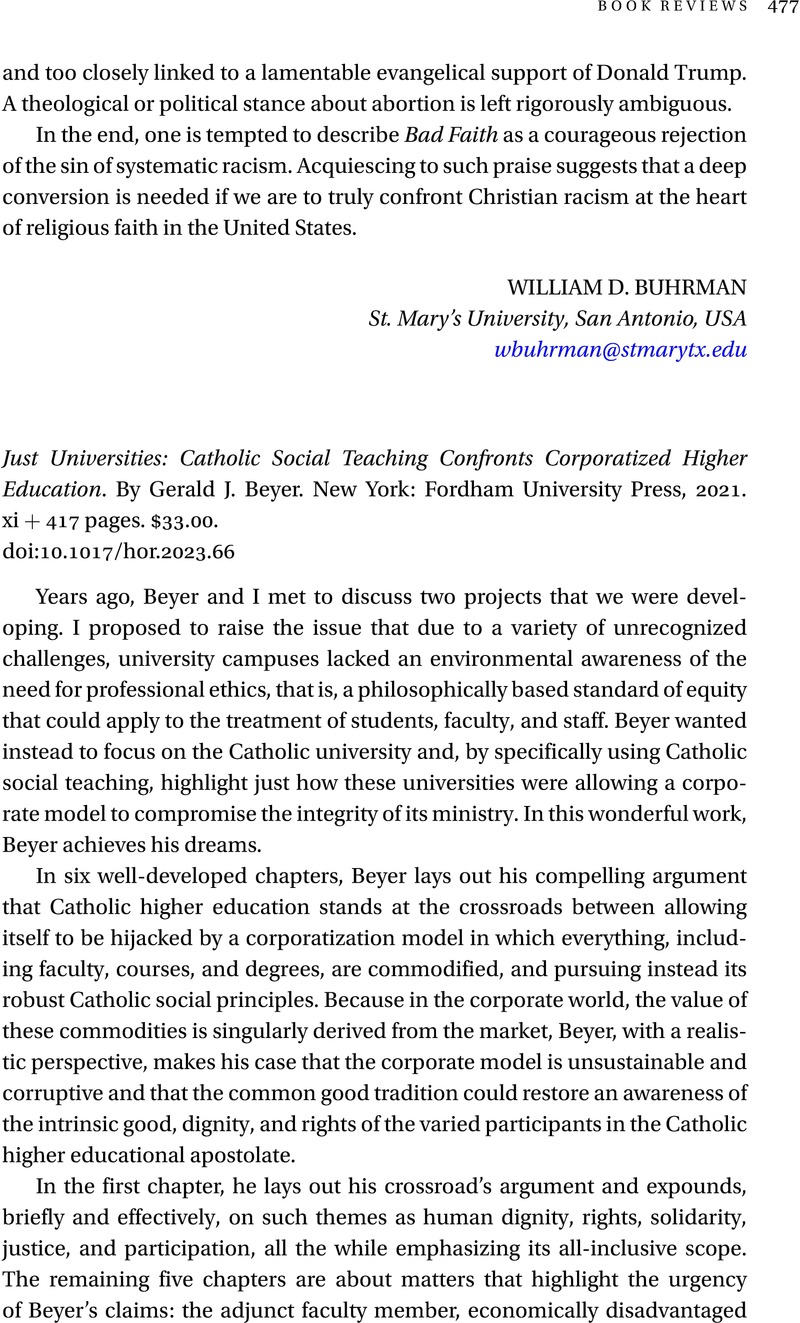No CrossRef data available.
Just Universities: Catholic Social Teaching Confronts Corporatized Higher Education. By Gerald J. Beyer. New York: Fordham University Press, 2021. xi + 417 pages. $33.00.
Review products
Just Universities: Catholic Social Teaching Confronts Corporatized Higher Education. By Gerald J. Beyer. New York: Fordham University Press, 2021. xi + 417 pages. $33.00.
Published online by Cambridge University Press: 08 March 2024
Abstract
An abstract is not available for this content so a preview has been provided. Please use the Get access link above for information on how to access this content.

- Type
- Book Review
- Information
- Copyright
- © College Theology Society 2024



